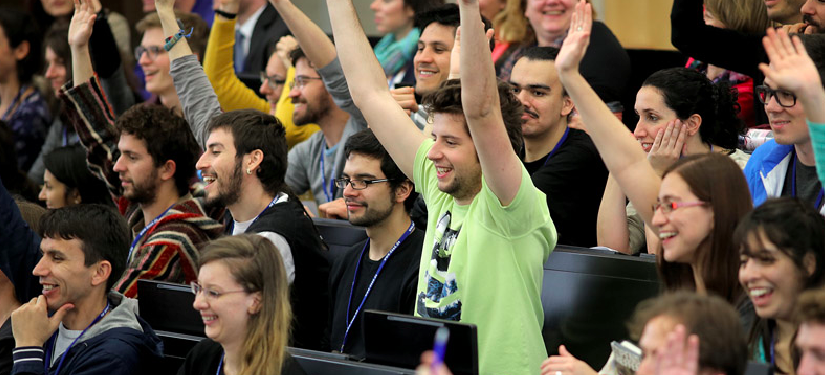Figures from the German Academic Exchange Service (DAAD) show that the number of international students in Germany increased by 7% last year to 300,000. The organisation says its goal of hosting 350,000 foreign students by 2020 is “more than achievable”.
News and business analysis for Professionals in International Education
Have some pie!
DAAD 2013 figures show Germany on track for 2020 goals
 Photo source: DAAD
Photo source: DAAD Further data from DAAD’s annual report reveal that despite awarding scholarships for some 120,000 Germans and foreigners, its target of 50% of German students studying abroad outlined in its six year plan might be more challenging.
The overall budget allocated to DAAD by the German government increased by €22.4 million last year equating to a 6% increase in scholarships awarded
“As in past years, we are seeing enormous growth in all areas,” Dorothea Rüland, General Secretary at DAAD told The PIE News. “In 2013 we set an all-time record, funding just under 120,000 Germans and foreigners, that’s double as many as in 2010.”
However, in order to encourage more German students to study overseas, Rüland said: “We have to expand our scholarship and funding programmes to meet the increased demand and the key to achieving this is to secure more financing.”
Despite Rüland’s concerns about funds needed to support German study abroad goals, the overall budget allocated to DAAD by the German government increased by €22.4 million last year equating to a 6% increase in scholarships awarded- 119,906 overall consisting of 69,813 for Germans and 50,093 for foreigners.
Rüland added that aside from the rise in the number of funding recipients “the growing interest in university collaborations between both German and foreign higher education institutions is remarkable.”
The “Strategic Partnerships” programme, which launched in 2012 to encourage universities to build strategic partnerships and thematic networks with one or more foreign universities, gathered significant speed by the end of 2013 according to the report.
“The ‘Strategic Partnerships’ is something we wish to strongly expand because they provide universities the opportunity to cultivate cooperative ventures based on their own internationalisation goals and profiles,” said Rüland.
“The political upheaval we’ve been witnessing in Ukraine and North Africa also demonstrates how important academic exchange can be in politically challenging situations,” she added. “This is where we have to respond flexibly to new political realities.”
Looking to Africa specifically, Rüland said that DAAD’s Africa strategy aims to “make universities more efficient” because “only a functioning education system can guarantee sustainable growth.”
“The political upheaval we’ve been witnessing in Ukraine and North Africa also demonstrates how important academic exchange can be in politically challenging situations”
“Despite positive economic data in Sub-Saharan Africa, the higher education systems there are in desperate need of support,” she said. “We are focusing on educating highly qualified university instructors as multipliers in this process.”
To continue on its trajectory of growth, the organisation plans to rely on its network of 70 branch offices and Information Centres to promote internationalisation at German universities and provide expertise to advance scientific collaboration worldwide possible.
“We wish to share this knowledge with our partners, German universities and ministries even more intensively in the future,” she explained.
Other initiatives for the future include transnational higher education projects such as the Turkish-German University, which opened its doors last September in Istanbul.
Still looking? Find by category:



17 Responses to DAAD 2013 figures show Germany on track for 2020 goals